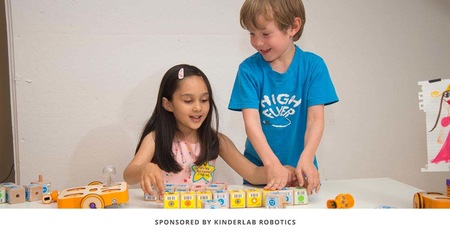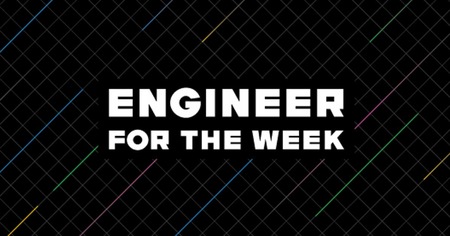When I was in school, portable tape players were the latest tech, phones were attached to the wall, and information was found in dusty library books. I appreciate that I am on the far end of the "in my day" spectrum. You probably fall somewhere a lot more recent. Yet with so much change taking place, I still guarantee that your school experience was very different from the young people in your programs.
To take just one metric: How much screen time do you remember having by age 5?
Compare that to the screen time the average preschooler has today.
I believe history will show that we are living through an information revolution. A change as powerful as the industrial revolution was 200 years ago. Right in the middle of all this change is STEM—the intersection where technology and education meet.
When I was in school, the term "STEM" had not even been coined. Today, STEM has become a household word. It is an important priority for many schools, enrichment programs, parents, career goals, toys and even youth television.
From YouTube to jobs, STEM has become an important feature in our young people's lives. This rapid rate of change makes it difficult for us to use our own experiences to make assumptions about what today's youth know and feel about STEM. After all, most of us were in school a long time ago in STEM years.
Would your young people answer the questions below the same way as you?
- What does a science laboratory look like?
- What is the difference between chemistry and physics?
- What do scientists do?
- Are more scientists male or female?
- Do you need to be good at math to program a computer?
- What does an engineer do?
- What are three jobs a scientist does?
- Do you need a Ph.D. to be a scientist?
- Is science fun?
As much as many adults think of young people as empty vessels they can pour information into, that's not how learning works. From birth, we have all been gathering knowledge through observation, investigation and instigation. All this knowledge and experience provides the context for any new information that we learn.
Given the rapid pace of change, to be able to effectively and positively promote STEM it is important to take the time to discover what young people actually know and think about STEM.
Below are a few short, open-ended activities that can be used to help young people clarify their knowledge and feelings about STEM while helping you identify any information gaps or misconceptions that will need to be addressed.
Invite youth to:
- Draw their idea of a laboratory.
- Draw a scientist.
- Discuss why STEM is important.
- Write a paragraph on what a day in the life of a biologist would be like.
- Describe a day in the life of an engineer.
- Make a list of jobs that use science.
- Write a poem about a science lab.
- Complete a sentence:
a. I like science because ______.
b. Science can be scary because ______.
c. I want to be a scientist when I grow up because______.
d. I think science is hard/easy because_____. - Talk about a famous scientist and his or her work.
- Read a story about a scientist and discuss it.
The informal afterschool setting is perfect for making STEM relaxed and fun. By seeking to understand young people's perceptions, your program will also be better positioned to help fill gaps, address misconceptions and help foster positive STEM attitudes.
As a wise man once said: "You do not know what you do not know."
So, I encourage you to implement some of these short, open-ended activities to discover how young people feel about STEM and help guide them to see its value and importance in their lives.
Written by Andy the Science Wiz, NAA STEM Specialist Andy Allan.




